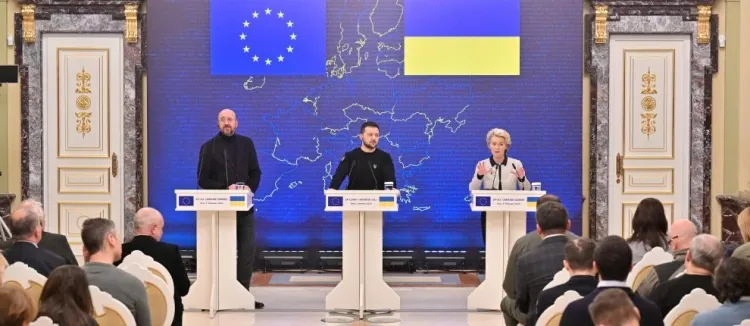Europe's Role in Global Negotiations: A Diminishing Influence
As global powers engage in critical negotiations, Europe finds itself sidelined in discussions between the U.S. and Russia. What does this mean for the continent's future?

Europe's absence from key negotiations in Riyadh between U.S. and Russian officials underscores a significant shift in the geopolitical landscape. The ongoing conflict in Ukraine has highlighted the continent's increasingly marginalized role in global diplomacy, raising questions about its future relevance. This article explores Europe's current standing, the implications of its sidelining, and the potential for a shift in political dynamics as elections loom across the continent.
The Sidelining of Europe in Global Negotiations
The recent discussions between American and Russian officials signal a strategic move to bypass European influence. Analysts argue that this exclusion is due to Europe's unrealistic demands, particularly regarding NATO expansion and military support for Ukraine. Over the past three years, Europe has adopted a confrontational stance, focusing on military solutions rather than diplomatic engagement. Such an approach has made it challenging for European nations to participate in meaningful negotiations, prompting the U.S. and Russia to conclude that their presence could hinder progress.
The lack of a neutral negotiating space in Europe further complicates matters. Traditional venues like Helsinki and Geneva are no longer viable, leaving Europe in a precarious position. This diminished relevance raises concerns about the continent's ability to influence its security landscape and represents a broader trend of geopolitical decline.
The Implications of Europe's Decline
Europe's dependency on the U.S. for security has increased, leading to a loss of autonomy in foreign policy decisions. As the U.S. asserts its influence, European nations find themselves constrained, unable to pursue independent strategies that align with their national interests. This reliance has resulted in economic challenges, including de-industrialization and diminished global competitiveness.
To reverse this trend, Europe must reevaluate its approach to security and diplomacy. Engaging in constructive dialogue with Russia to acknowledge mutual security interests could pave the way for a more balanced and effective foreign policy. Additionally, reviving the European Union's collective bargaining power and investing in digitalization and infrastructure could help restore economic stability.
A Shift in Political Dynamics
With elections on the horizon, there is a growing sense of frustration among the European populace regarding current policies. Many citizens feel their leaders are not adequately representing their interests, particularly in the face of economic struggles exacerbated by ongoing conflicts. This discontent is likely to lead to a political shift, with emerging parties on both the left and right challenging the established political order.
The ideological commitment of current leaders to liberal hegemony has alienated a significant portion of the electorate. As public support wanes, a vacuum may emerge, allowing new political groups with fresh perspectives to gain traction. This shift could reshape Europe's approach to foreign policy and reestablish its role on the global stage.
Conclusion
Europe stands at a crossroads, facing significant challenges that threaten its geopolitical relevance. The exclusion from key negotiations with Russia and the U.S. reflects a broader trend of diminishing influence. To regain its footing, the continent must embrace a pragmatic approach to security, prioritize national interests, and engage in constructive diplomacy. As political dynamics evolve, Europe has the opportunity to redefine its role and assert itself as a meaningful player in global affairs.
For the latest insights into global affairs and Europe’s evolving role, stay informed and engaged.
What's Your Reaction?














